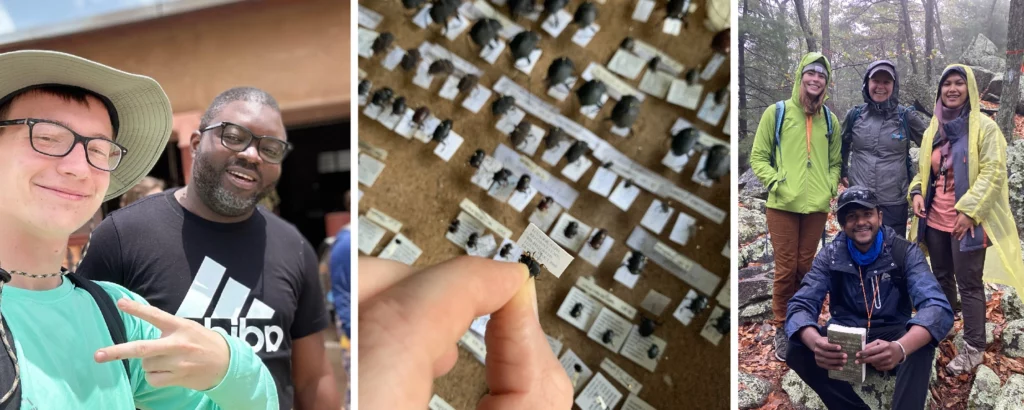EEB faculty are highly collaborative within our department and with researchers outside of the department or University. The cross-disciplinary and multi-disciplinary nature of our research is demonstrated by the number of centers, forums, and other initiatives that are led and fostered by EEB faculty.
Recent highlights of EEB research activities:
Orou Gaoue was a Fulbright fellow in South Africa in 2022-2023, where he studied the sustainable harvest of wild plants.
Jessica Budke and Kimberly Sheldon were each awarded the prestigious NSF CAREER award in 2021. Jessica investigates the evolution of structures enabling moss offspring to take more resources for their growth and Kimberly studies how temperature impacts the development and survival of dung beetles and the potential for behavioral shifts to buffer organisms from warming.
Dan Simberloff received an honorary membership from the British Ecological Society – the Society’s highest honor – for his “exceptional contribution at the international level to the generation, communication, and promotion of ecological knowledge and solutions.”
Ben Keck co-authored “Erosion of heterogenous rock drives diversification of Appalachian fishes” published in Science. The study highlights the importance of erosion through different rock types for allopatric diversification of fishes in the southern Appalachian Mountains, a hotspot of freshwater biodiversity that has been tectonically inactive for hundreds of millions of years.
Mike Blum co-authored the paper “Rapid plant trait evolution can alter coastal wetland resilience to sea level rise” published in Science. In Blum’s own words, “Our study shows how important it can be to account for rapid evolution in models designed to forecast the fate of high-value ecosystems like coastal marshes. Further efforts to understand how coastal marsh plants may respond to future climate change can lead to better management of services like storm protection, removing carbon dioxide from the atmosphere, and fisheries production.”
Stephanie Kivlin is a co-principal investigator on a five-year, $3.58 million National Science Foundation (NSF) grant to fund the collaborative research project “Defining the mechanisms and consequences of mutualism reorganization in the Anthropocene.” “Plant invasions are one of the largest impacts of human land-use across Earth, but the effects of invasions on belowground processes have largely been unexplored. Our project will unearth these hidden effects so society can be better prepared to mitigate detrimental effects on native plants in the future,” Kivlin said.
